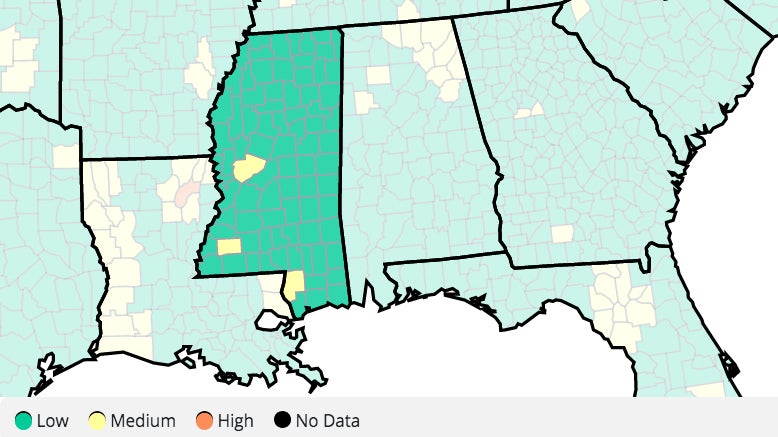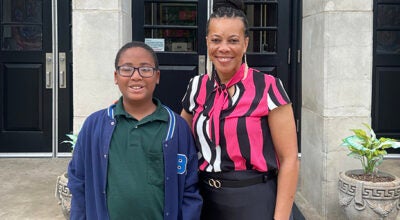COVID-19 Update: It’s over. Or is it?
Published 4:00 pm Saturday, October 15, 2022

- CDC IMAGE COVID-19 transmission levels in Mississippi as of Oct. 10, 2022.
“The pandemic is over,” President Joe Biden said Sept. 18 on 60 Minutes. “We still have a problem with COVID. We’re still doing a lot of work on it. But the pandemic is over.”
A pandemic exists when an infectious disease is prevalent over a whole country or the world.
World Health Organization officials say many nations have a good handle on what’s happening, considering the distribution of vaccines, access to effective treatments, and immunity. But in late September, WHO said that both the ongoing global death toll of 10,000 weekly and the prospect that continuing transmission will spawn a dangerous new variant prevents the organization from declaring an end to the COVID-19 emergency.
“The refrain of the pandemic has been that no one is safe until everyone is safe,” WHO director general Tedros Ghebreyesus said. “The pandemic is not over, but the end is in sight.”
In Mississippi, 1,359 positive test results for COVID-19 were reported during the week of Oct. 4-10. Seventeen deaths were also reported during that time, though 13 of them were identified from death certificate reports dated Aug. 14 to Sept. 24.
The state has recorded 930,438 total cases and 12,945 deaths since the pandemic began.
Community transmission levels were low for every one of Mississippi’s 82 counties, with the exception of three, which were rated medium. These were Franklin, Pearl River and Yazoo counties. In bordering states, only one area was rated higher than medium. Richland Parish in Louisiana, east of Monroe, was calculated as high.
No deaths or cases were reported in Lincoln County for the week. No one was admitted to the hospital with COVID-19 issues, either.
For the immediate period, problems with COVID-19 appear to be under control in Lincoln County, but more than 1,300 people and several families might argue it’s not over yet.
Vaccines and boosters are available at multiple locations across the state and nation. Visit vaccines.gov or contact a local pharmacy or healthcare provider.





